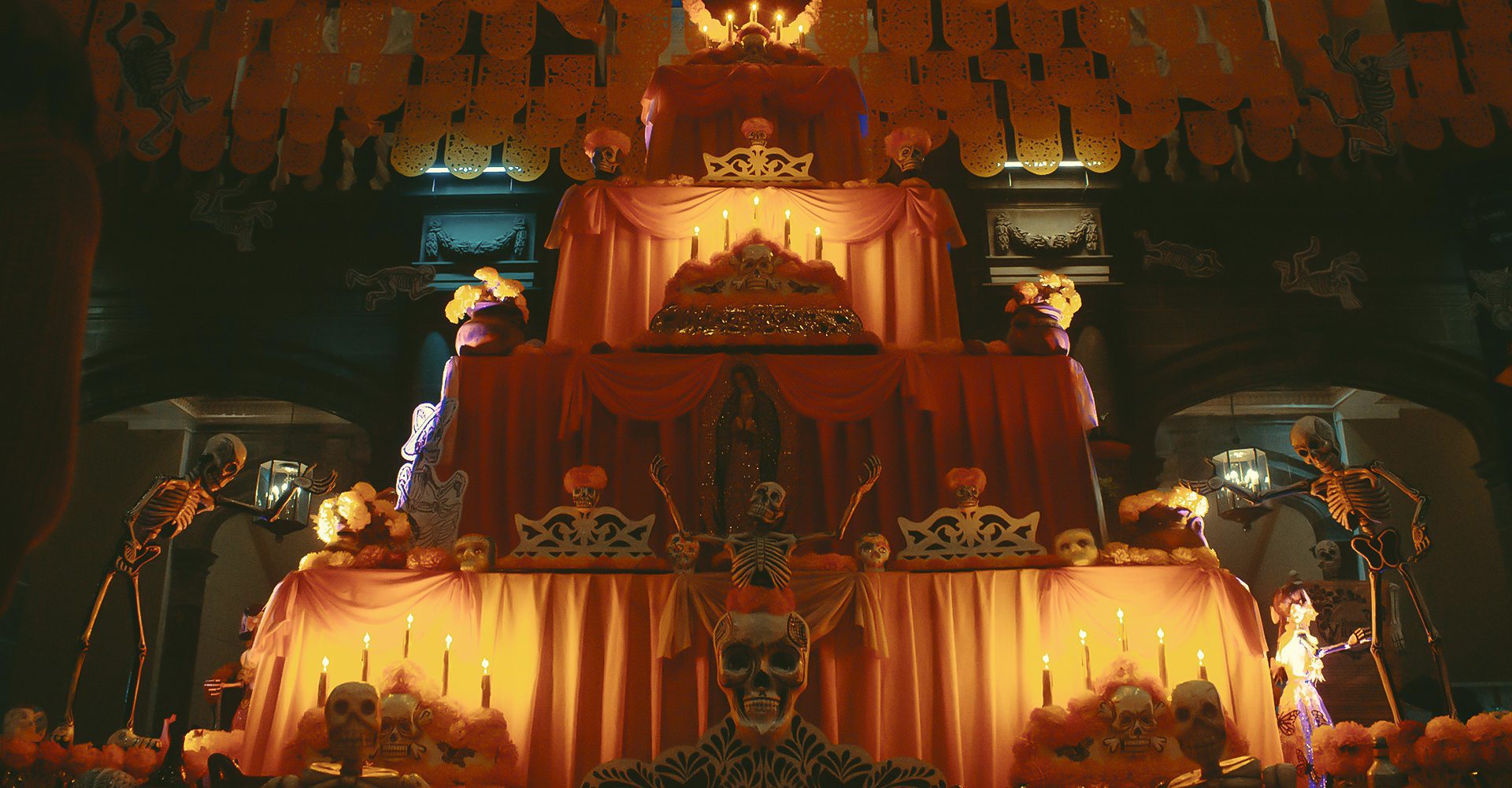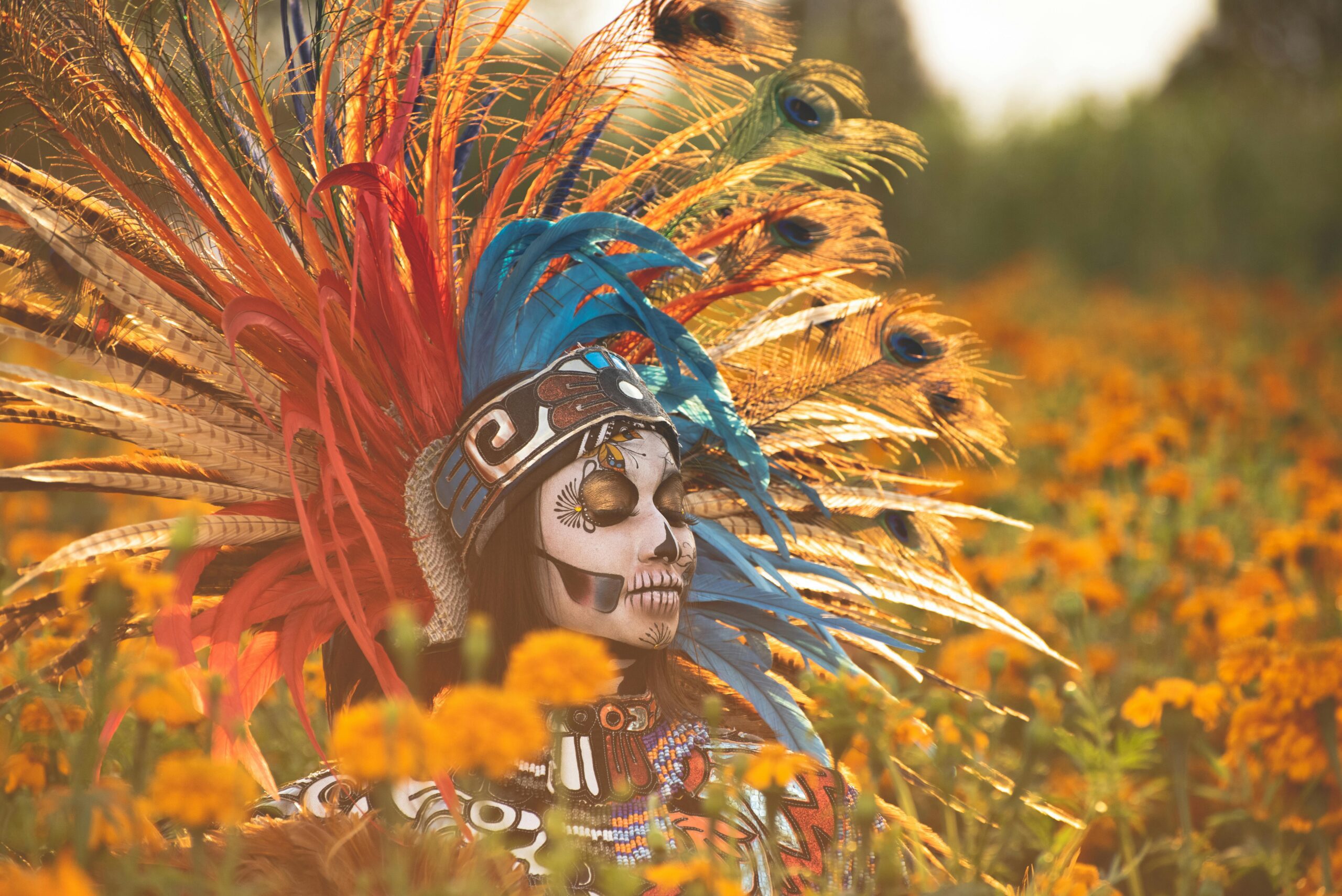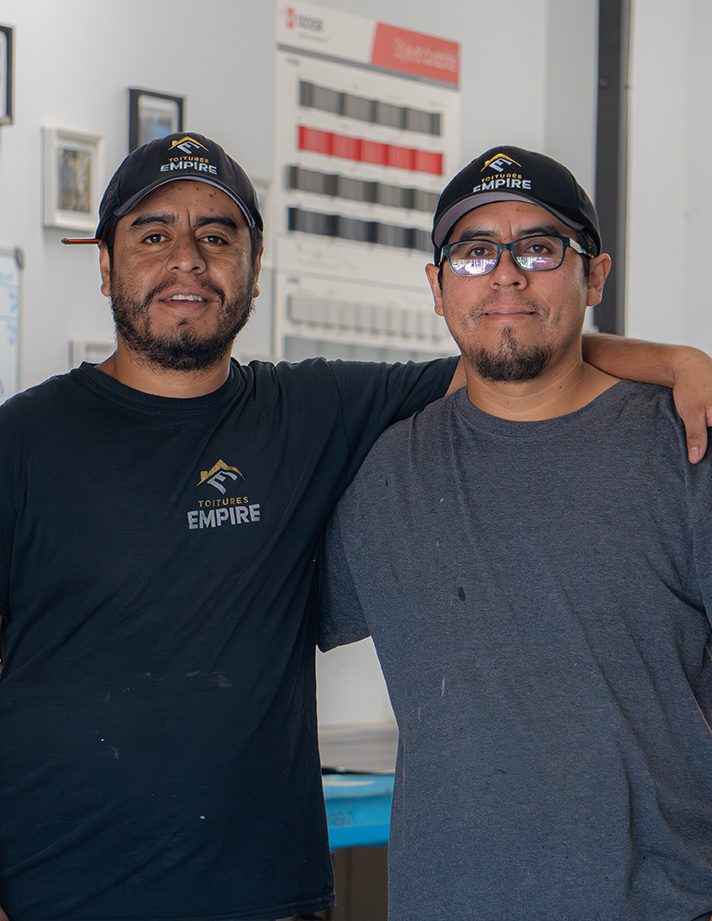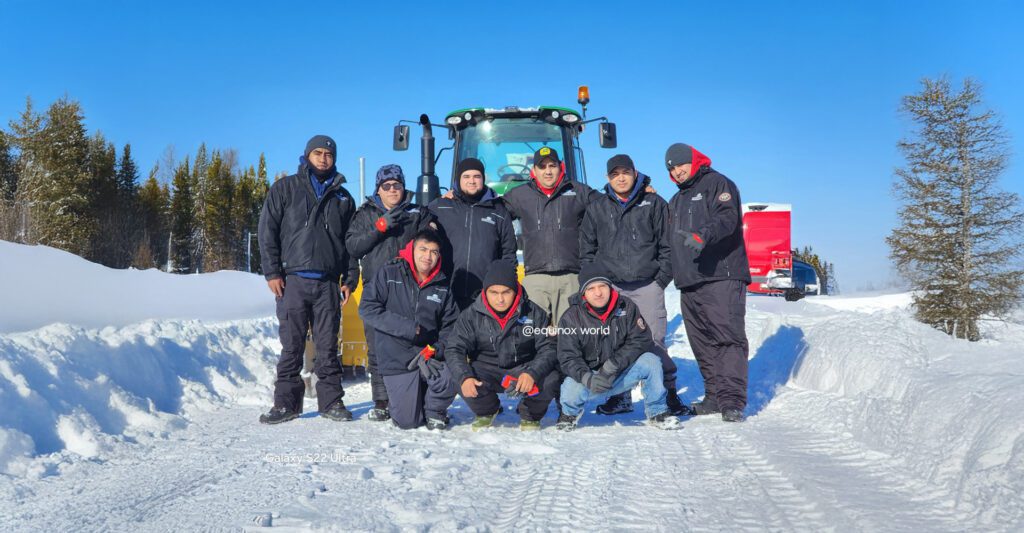The day of the dead in Mexico – A living tradition

On November 1st and 2nd, Mexico transforms into a vibrant display of colors, aromas of marigolds, and offerings, paying tribute to one of its most cherished traditions: the “day of the dead.” Recognized by UNESCO as intangible cultural heritage of humanity, this holiday provides a unique and profound perspective on life, death, and the bond between them, which many Mexicans feel is as close as the connection between the living and their ancestors.
Ancient roots and cultural influences
The day of the dead has its origins in the indigenous cultures of Mesoamerica, where ancient civilizations, such as the Mexica, Maya, and Purépecha, performed ceremonies to honor their deceased long before the arrival of the Spanish. In these societies, death was not viewed as an end but as a natural step toward another dimension. With the arrival of the conquerors, the day of the dead was enriched with elements of Catholicism, creating the celebration we know today.
The elements that connect the living and the dead
One of the most impressive aspects of the day of the dead is the creation of altars and offerings. Each element on these altars has a profound meaning: the bright yellow marigold flowers guide the spirits with their scent; candles light their path; the traditional bread, with its circular shape symbolizing the cycle of life, is a welcome in their honour. Adding to this, the altars are full of colour with traditional papel picado (perforated paper) and, of course, photos of the loved ones being honoured. These altars are an expression of love and respect for those who are no longer physically present but whose memory remains an essential part of the family.

A celebration of identity and family unity
The day of the dead is much more than a holiday; it is a symbol of identity that keeps the connection between generations alive. During these days, the past and present meet, and Mexicans honour their loved ones with joy, celebrating their lives, tastes, and legacy. The importance of this tradition lies in the fact that it is not merely a reminder of death but an affirmation of life and love that extends beyond what is visible. In an act of love and resilience, each family reaffirms its roots, sense of belonging, and cultural pride.
The day of the dead: a bond that transcends borders and strengthens identity
For Mexican temporary workers in Canada, the day of the dead holds even deeper meaning. Being far from home on such a special date can be emotional and challenging, but it also becomes a moment of introspection and strength. During this holiday, memories become a bridge connecting the workers with their families and heritage, providing them with comfort and reminding them that, even from afar, the bonds with their loved ones remain alive in their hearts.
This cultural richness not only helps them maintain their identity abroad but also brings valuable diversity to the Canadian workplace. Companies that value these traditions are enriched with unique perspectives and knowledge, fostering an environment where each person is valued not only for their skills but also for the stories and customs they bring with them. For temporary workers, the day of the dead is much more than a celebration; it is a bond with their roots and a reaffirmation of their values and culture. Despite the distance, this day reminds them that family and cultural ties are unbreakable, giving them the emotional support needed to achieve their goals and contribute their talents to the companies that welcome them. This tradition accompanies and strengthens those who carry Mexico’s essence in their hearts, reminding them that their history and culture will always be a fundamental part of their identity.


